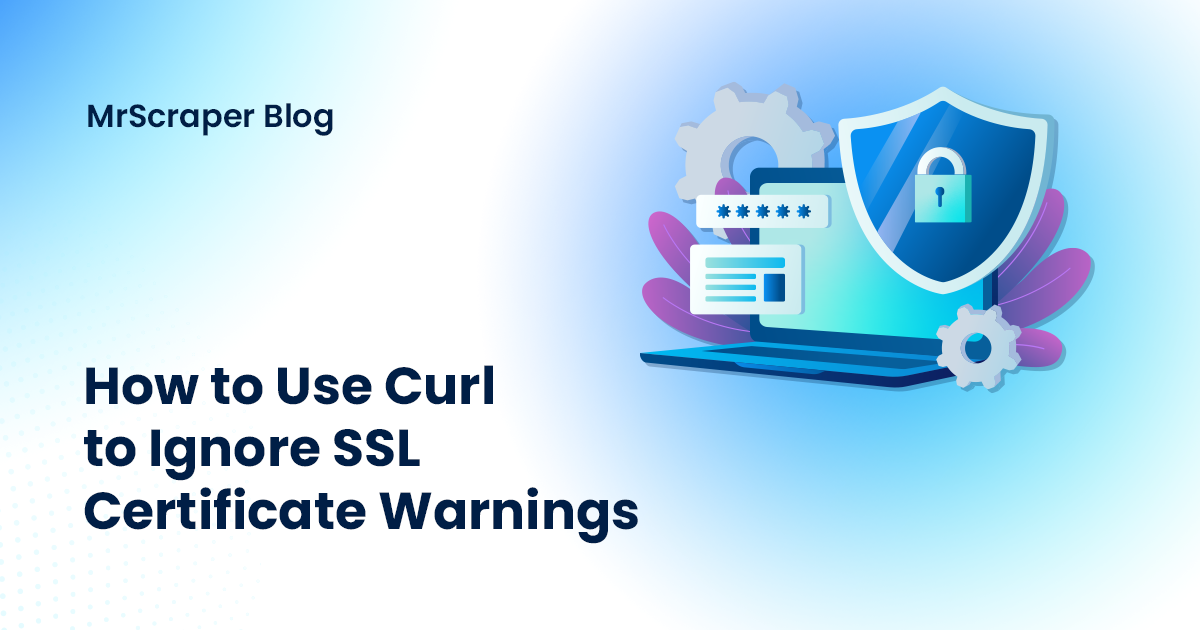How to Use Curl to Ignore SSL Certificate Warnings

curl is a versatile command-line tool that facilitates data transfers over various protocols like HTTP, HTTPS, FTP, and more. It automatically verifies SSL certificates to ensure secure communication between your system and the server. However, in certain scenarios, especially during development or testing, you might encounter self-signed or expired certificates that can cause errors. This article explains how to use the -k or --insecure flag in curl to bypass SSL certificate validation.
Why SSL Validation Matters
SSL (Secure Sockets Layer) ensures a secure and encrypted connection between a client (like a browser or curl) and a server. It verifies the identity of the server and protects sensitive data during transmission. Normally, when curl connects to a server using HTTPS, it verifies the server's SSL certificate against a list of trusted certificate authorities (CAs). If the certificate is invalid, expired, or self-signed, curl will block the connection and return an error.
Example of an SSL error:
curl https://example.com
#Output:
#curl: (60) SSL certificate problem: unable to get local issuer certificate
Ignoring SSL Errors with curl
For testing purposes, it may be necessary to bypass SSL checks. To do this, you can use the -k or --insecure option, which allows curl to skip the certificate validation and continue the connection. This is especially useful when dealing with self-signed certificates, misconfigured servers, or during local development.
Command to ignore SSL errors:
curl -k https://example.com
or
curl --insecure https://example.com
How It Works
The -k (or --insecure) flag instructs curl to proceed with the transfer even if the SSL certificate verification fails. It effectively disables the certificate validation that curl performs by default. However, this also means that curl won’t check whether the server’s certificate is valid, trusted, or signed by a recognized CA, which could expose you to potential security risks.
Important Considerations
- Development Use Only: Bypassing SSL validation should only be done in non-production environments. Disabling these checks in production could expose sensitive data and leave your connection vulnerable to attacks such as man-in-the-middle (MITM).
- Security Risks: Disabling certificate validation can lead to serious security vulnerabilities. It’s crucial to ensure that this practice is limited to testing and is not used on public or sensitive data transfers.
Example Usage
Access a server with an invalid certificate:
If the server uses an invalid SSL certificate (e.g., expired, self-signed), running the following command would ignore the SSL validation and proceed:
curl -k https://self-signed.badssl.com/
Fetch a web page's content without validating the SSL certificate:
curl --insecure https://your-test-server.local
Useful in scripting:
In scripts where curl is used for testing, the -k option can avoid interruptions due to SSL errors. Here’s an example within a script:
#!/bin/bash
response=$(curl -k https://my-test-server/api/data)
echo $response
When to Avoid Ignoring SSL Errors
It is generally a bad practice to bypass SSL checks in a production environment. Using the -k option removes the guarantee that the server you're connecting to is secure, leaving your data exposed to potential threats. Always ensure SSL validation is enabled in production environments to safeguard sensitive data.
Conclusion
While the -k or --insecure option in curl can be convenient for development and testing, it’s essential to use it with caution. SSL certificates are fundamental for ensuring secure communications, and bypassing these checks in production environments can lead to severe security risks.
Use curl -k only in situations where security is not a concern, such as in testing environments with self-signed certificates. Always aim to fix SSL certificate issues rather than bypass them in real-world scenarios.
Table of Contents
Take a Taste of Easy Scraping!
Get started now!
Step up your web scraping
Find more insights here

How to Find Someone’s IP Address (Legally and Safely)
Curious about how to find someone's IP address? Learn the legal, safe, and common ways people locate IPs—and why it's important to use this knowledge responsibly.

HighProxies: What They Are and When to Use Them
Discover how HighProxies can help with web scraping, social media automation, sneaker bots, and more. Learn when to use dedicated proxies for better online performance.

Monke Unblocker: Bypass School Restrictions on Chromebooks
Discover how Monke Unblocker enables students to bypass school network restrictions on Chromebooks, offering secure access to educational and entertainment websites.


@MrScraper_
@MrScraper